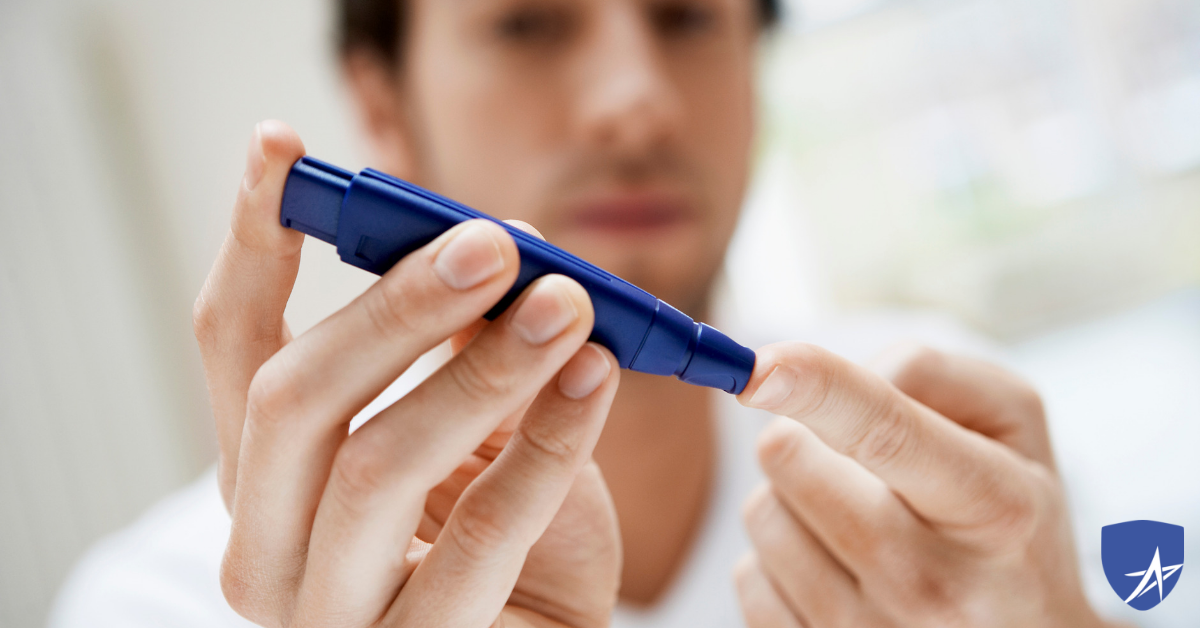Well, it happened. The scary word “prediabetes” has left the doctors lips, and chances are you’ve probably entered panic mode. This isn’t a death certificate, though, and it’s certainly not a sure-fire indication that you’ll be diagnosed later with actual diabetes.
Here are a few things you should do now that you’ve been diagnosed with prediabetes so you can continue living a happy and healthy life:
- Check out the Medicare Diabetes Prevention Program (MDPP), assuming that you’re already signed on to Medicare. This program, covered by Part B, is a structured behavioral change intervention that works with those who have been diagnosed with prediabetes to try to prevent their condition from developing further into type 2 diabetes. This program includes a minimum of 1 “core” sessions over six months to provide practical training concerning dietary change, physical activity, and behavior modifications that lend themselves to controlling your weight.
- Keep in touch with your doctor. Not only will they want to know how you’re doing, but they can give you some positive reinforcement to help keep you on track to ditching this diagnosis. They might recommend you start taking “Metformin,” a medication that is designed to prevent the development of type 2 diabetes by keeping the liver from making more glucose than you need.
- Try to lower your weight, if you’re overweight. Studies have shown that through doing working on lowering their weight, some people who have been diagnosed with prediabetes have cut their chances of getting full-on diabetes by 58%. Incorporate exercise and diet restrictions to your routine to make your chances of developing diabetes much less likely.
- In terms of dietary restrictions, try to keep what you consume low in carbohydrates. A low-carb diet can improve blood glucose control, insulin resistance, and weight control. Practice portion control, drink less alcohol, eat leaner meats, and incorporate more fiber-rich food into your meals. The substances you consume can make all the difference in your health if you’ve just been diagnosed with prediabetes.
- In terms of physical activity, you don’t need to start going to the gym 6 hours a day and get ripped just to make sure you don’t develop diabetes. Try riding a bike to work, walking places instead of driving, or participating in sports with local teams. Just 30 minutes of exercise per day can reduce your risk of developing type 2 diabetes by a great deal. You don’t need to go out and buy a gym membership either. The Medicare sponsored program “Silver Sneakers,” for instance, provides a great way to exercise at local venues for free.
- Work on managing your stress levels so you can stay motivated towards reversing your prediabetes. By preemptively solving problems you can prevent the slowing of your progress because stress can become distracting and make it difficult to keep motivation for your goal.
- Ask for support from those closest to you or join groups where you’ll get support whilst chasing a healthier lifestyle. Being around others who have been diagnosed with prediabetes and have similar goals as you can make all the difference when it comes to your health. You can contact certified diabetes educators by finding them online, though there is no guarantee that the services they offer will be covered by your Medicare plan.
- Lastly, make sure you’re getting a good amount of sleep. The amount of rest your body gets can severely impact the amount of insulin it uses, making you potentially more vulnerable to developing type 2 diabetes. Avoid caffeinated after lunch to make sure you have no issues getting to sleep.
So What Now?
Just because you’ve been diagnosed with prediabetes doesn’t mean it’s condemning you to a shorter life. Please keep in mind that none of these are sure-fire methods to preventing your prediabetes from developing into diabetes. Your genetics might make you predisposed to developing diabetes during your lifetime, and that might not be something that can be negotiated. Contact a licensed representative to find out more information about the prediabetes prevention program or for more about what diabetic treatments are covered by Medicare. Together, we can hope to dia-beat-this.
Editorial Disclaimer: The content on this page has not been reviewed, approved or otherwise endorsed by any diabetes association or other health associations. It is always advised to seek the opinion of a medical professional.

